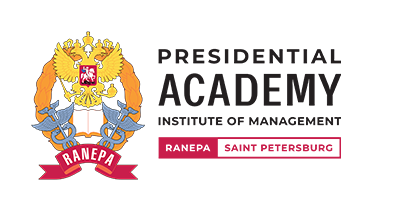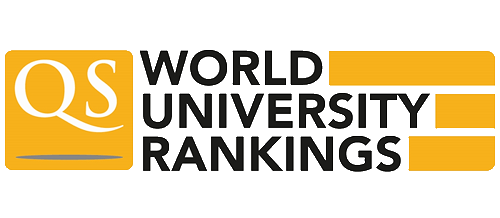MEDICAL UNIT
Main building
57/43 Sredny prospekt, Vasilievsky Island, office 120
Working hours:
Monday-Thursday: 10.30 – 13.00; 14.00 – 16.00
Friday: 10.30 – 13.00; 14.00 – 15.30
Saturday, Sunday – closed
+7 (812) 323-99-74
+7 (812) 335-94-94, ext. 1266 / 1347
SUPERMARKETS
There is a number of large supermarket chains in St. Petersburg which have also mobile applications for online deliveries:
Disсounters:
Medium level:
Premium level:
PHARMACIES
There is a number of large pharmacy chains in St. Petersburg. On their websites or in mobile applications you can place online orders and pick them up in the nearest pharmacy of your choice:
- «Озерки» — Ozerki
- «Лекоптторг» — Lekopttorg
- «Столички» — Stolichki
- «Планета здоровья» — Planeta Zdorovya
- «Петербургские аптеки» — Peterburgskie Apteki
- «Фиалка» — Fialka
- «Фармакор» — Farmakor
- «Радуга» — Raduga
- «Невис — Nevis
- «Аптека для бережливых» — Apteka dlya berezhlivykh and other
Online platforms for medicines search and placing orders in various city pharmacies:
CEll / MOBILE PHONES
International roaming and calling rates for your cell phone are usually very expensive. If you have a smart phone, please contact your provider to ask them how to avoid expensive international fees.
If your cell phone can accept an international SIM card AND has been unlocked, you can purchase a Russian SIM card to use the phone in Russia.
Russian cell phones all start with ‘+7’ numbers and have 10 digits.
Russian Phone Numbers
Russian phone numbers have 10 digits and start with an additional ‘+7’ or ‘8’.
The country code for Russia is +7.
Saint Petersburg code is 812.
The major mobile operators in Saint Petersburg are:
SIM cards for Russian mobile operators in Saint Petersburg can be purchased in mobile operators offices at the nearest metro station. To buy a card you must show your passport.
Electronics
Russia’s wall outlets use 220V AC power with a 2-pin plug.
Most electronics with an AC adaptor are dual-voltage adaptable so you do not need to convert the power.
Money
It is better to carry US dollars or Euros — then you will not have any problems with changing them. There are currency exchange offices all around Saint Petersburg, many of them work 24 hours, but it is safer to change money in banks. There are also many ATMs, usually next to banks, metro stations exits and department stores. The ATMs take no commission or only 1%, but your bank will charge you for the transaction. Take enough cash, credit cards and checks in advance to avoid problems. It is best to have a bank card that supports international payment system, such as Visa, MasterCard, Maestro, etc. Or, to use international money transfer systems (MoneyGram, Western Union or others). But do not forget that when you use a credit card, you can withdraw the money gradually, which is always a safer option than getting a large amount of money by transfer at once and walk with it in the crowd. Most banks are open from 9.00 to 17.00-20.00.
The state bank of Russia is Sberbank (Сбербанк).
Russian Customs and Traditions
Russian names are comprised of:
- First name, which is the person’s given name.
- Middle name, which is a patronymic or a version of the father’s first name formed by adding ‘- vich’ or ‘-ovich’ for a male and ‘-avna’ or ‘- ovna’ for a female. The son of Ivan would have the patronymic Ivanovich while the daughter’s patronymic would be Ivanovna.
- Last name, which is the family name or surname.
It is polite to refer to elderly people or seniors by both first and middle name. To others you can address only by first name. It is better to avoid addressing people by their surnames.
For example, Elena Vladimirovna Orlova, where Elena is the first name, Vladimirovna is a patronymic (her father’s name is Vladimir), and Orlova is a surname. So, in a conversation it is polite to address her Elena Vladimirovna. In all official documents she will be referred to as E.V. Orlova.
The typical greeting between men is a handshake. With older people you shake hands only if they stretch out their hand first. And a simple greeting according to the time of day would be good for everyone.
Women and old people are respected here. It is considered basic politeness to offer your seat to a woman or an elderly person in public transport.
Russian etiquette dictates that men take off their headwear (hat, cap etc.) when they enter a room.
If you are invited to a non-official party or dinner it is polite (you are expected) to bring something with you – a small snack or drink is usually accepted with pleasure.
Safety
Saint Petersburg generally has the same level of security as any other big European city, in some cases it is safer. There are quite as many policemen on the streets as in Moscow and there’s a rare chance to see somebody who might represent a danger (especially in the centre). Like in any big city you should avoid dark streets and courtyards at night and some urban areas. If you are vigilant, the event of robbery is unlikely, however, take extra care in busy streets and watch out for pickpockets.
If you are robbed or lose something important, please contact the police phone number is 112 (or 020). You can dial this number from any payphone or mobile for free. Also, you can find police stations in the city (Полиция (Politsia) sign) or inside metro stations. The problem is that policemen usually speak Russian only, so it is better to find someone to help you to explain.
Top Tips for Dealing with Culture Shock:
- Be curious but non-judgemental
- Engage with your environment as much as possible
- Participate in activities and keep a regular schedule
- Eat well, exercise and get sufficient rest
- Be honest about how you are finding the experience
- Relax and take time to unwind
- Open your mind and eyes as much as possible
- Accept the differences in the culture around you
- Talk about any concerns with a friend
Useful links:
- http://www.metro.spb.ru/en/ — public transport (metro)
- https://en.gocitybus.ru/ — sightseeing in St. Petersburg
- http://eng.ispb.info — St. Petersburg Tourist Information Bureau
- https://www.russiantrain.com/st_petersburg_railway_stations — railway stations in St. Petersburg



